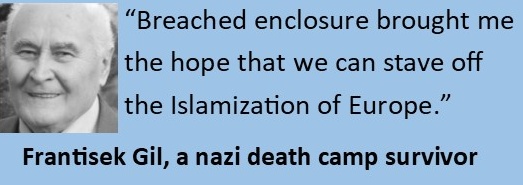America was alive last week with the Kyle Rittenhouse trial. The 17-year-old who wanted to be a police officer joined a group that protected stores in Kenosha County, Wisconsin during last year’s Black Lives Matter looting. The police let the looting mob run wild, leaving people with no choice but to defend their stores themselves.
Kyle Rittenhouse was first attacked, and then the mob tried to lynch him. During the scuffle, he shot three men. Two of them while he was on the ground in the middle of an angry mob. The trial took place last week. The jury had detailed video footage and a lot of testimony. They unanimously concluded that it was necessary self-defense.
The young man is now going on trial against the big media, which has written a lot of repulsive lies about him. But I don’t think that’s the end of it for him. When a 17-year-old gets the experience of an attempted lynching and shoots two people, it will probably mark him for life.
When a 17-year-old gets the experience of an attempted lynching and shoots two people, it will probably mark him for life.
Some were happy with the verdict, some weren’t. Depending on which political party one sympathizes with. That’s to be expected.
But what is far more serious is that the rabid progressives are not arguing that the court overlooked something, underestimated some circumstance, misjudged some section. Most of the objections are to the court’s consideration of the evidence at all.
A comparison with the trial of Derek Chauvin (the police officer whose arrest resulted in the death of drugged felon George Floyd) shows what they probably imagined. The evidence showed that Officer Chauvin could not have acted differently, and that he bore no culpability in Floyd’s drug overdose. But that was not dispositive. Most of the trial revolved around what feelings the defendant had aroused in whom. Witnesses spoke dramatically about how they felt. And Officer Chauvin got 22 years!
When we read the comments on Ritterhaus, we actually see a demand that he be judged by their feelings. Like the fact that when someone hears his name, they think “domestic terrorist”. Isn’t that reason enough to pass judgment?
…when someone hears his name, they think “domestic terrorist”. Isn’t that reason enough to pass judgment?
Note that this is not something that the accused can control. He’s not being tried for his opinions or political positions (although that would be unacceptable too). He’s being tried for what some editor who has never seen him in his life, and who is basically uninterested in his case, writes about him.
It’s always been the case that the courts’ decisions have been influenced by the accused’s reputation, and what feelings prevail. But it was believed that this was not the way it should be, and that judges should do their best to counter it. Therefore, issues such as ‘bias’ – that is, judges or jurors being unable to judge a matter impartially – were addressed. The new situation is that bias is required.
When the basic mechanisms of civilisation break down, we can hardly expect impartial courts to remain.
In the Kyle Rittenhouse case, the judge ran the trial the old-fashioned way. He focused on the facts and defended himself against media interference. But how much longer will judges like this continue to rule?
We could say something along the lines of “crazy Americans, they own it.” We could. If it didn’t spill over into Europe, including the Czech Republic. We have the example of Walter Kraft, who was convicted without an evidentiary hearing. According to the judge, the case was perfectly clear even without evidence.
It’s actually logical. When the basic mechanisms of civilisation break down, we can hardly expect impartial courts to remain. Which, by the way, is also a difference from past totalitarian regimes. There, there were indeed political trials, but the aim of the regime was to maintain – outside these political trials – an impartial and functional judiciary.


